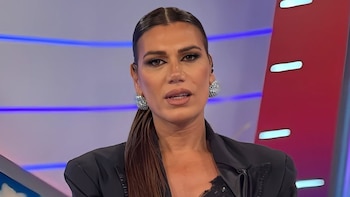
(ATR) Fifty years after the inaugural All-Africa Games were contested, the continental multi-sport event returns to Brazzaville.
The 11th edition of the games officially begin with the opening ceremony on Friday evening (September 4) at the newly completed Stade Municipal de Kintélé, the national stadium of the Republic of the Congo.
More than 5,000 athletes representing fifty-four nations – including the recent recognition of South Sudan into ANOCA and the IOC – are expected to compete at the quadrennial games, which run through September 19.
Beleaguered by a long-running dispute between politicians and sport leaders regarding ownership of the event, the All-Africa Games are being contested under the guidance of the African Union Sports Commission in cooperation with the Association of National Olympic Committees of Africa (ANOCA).
Previously, the Supreme Council for Sport in Africa (SCSA) held the responsibility.
Diamil Faye, the president of Jappo Sports and Entertainment and a consultant to Brazzaville 2015, says that no matter who is in charge organizers must "find a way to get the games right."
"We have the obligation to do things right and deliver to the athletes as they deserve," Faye told Around the Rings. "We need to get our act together and organize a real international standard. All parties have to work together to make this happen."
"We can’t continue being the only continent in the world to have games being run by people that are not in sports," Faye said referring to the African sport ministers who comprise the African Union Sports Commission.
"Government’s role is to provide infrastructure and the means for athlete to compete. We have to leave the sports world to run the games."
Politics aside, ANOCA president Lassana Palenfo recently addressed Africa’s sporting youth about their role as participants at the Anniversary Games being staged in the Republic of Congo.
"Today, you stand as privileged witnesses for future generations, just like we, sports leaders today, were during the maiden edition," Palenfro said.
"Take full advantage of these beautiful Games, which are coming at a defining moment, following the adoption of Agenda 2020 by the International Olympic Committee.
"This pathfinder of world sport, to which the African Olympic Movement contributed fully, seeks to better disseminate Olympic values and strengthen policies on sports practice," said the 74-year old ANOCA leader, who is serving his third term.
Medals are up for grabs in traditional summer sports like athletics, aquatics, basketball, boxing, cycling, fencing, gymnastics, judo, tennis, beach and court volleyball and wrestling, while the martial art boxing pharaohs and nzango, a popular Congolese game, are also on the program.
As has been customary at previous All-Africa Games since 1999, athletes with disabilities will also compete, in athletics and swimming in Brazzaville.
Scientific and cultural activities, as well as a Youth Camp are also part of Brazzaville’s program.
The new 60,000-capacity Kintele Stadium and sports complex – which came at a reported cost of 500 million USD – was officially opened on Monday (August 31) with a well-attended football match between Congo and Ghana. The signature venue will be the setting for athletics and both the opening and closing ceremony.
The Congolese government has invested nearly 700 million USD to erect new and renovate old structures for the two-week sports carnival.
Sporting infrastructure renovated for the Games includes Ornano Stadium, the Omni Sport complex of Ouenze and Makelekele Massamba Debat Stadium, the site of the
first edition of the African Games in 1965.
Palenfo praised the efforts of Brazzaville 2015 and the Government of Congo ahead of the opening of the quadrennial All-Africa Games.
"Great credit of course goes to Congo, this wonderfully hospitable country, which will host this event with an innovative and forward-looking sports program for you, at your service," Palenfo said.
"The government of this country, to which we extend our sincere gratitude, has provided you with quality infrastructure of international standing, so that you can enjoy exceptional moments and make a show of your talents.
"The state-of-the-art facilities are a gift from the authorities of this country to you."
Faye said that equally important to quality venues, are efficient operations.
"The Olympic village and in terms of venues, the facilities are just amazing for an African country," Faye said. "For me, it’s not enough though, we need quality of human resources, making sure that information and communications are there and that we get our athletes to the venues on time.
"We need absolutely efficient operations."
Written by Brian Pinelli
20 Years at #1: Your best source of news about the Olympics is AroundTheRings.com, for subscribers only.
Últimas Noticias
Sinner-Alcaraz, the duel that came to succeed the three phenomenons
Table tennis: Brazil’s Bruna Costa Alexandre will be Olympic and Paralympic in Paris 2024

Rugby 7s: the best player of 2023 would only play the medal match in Paris

Rhonex Kipruto, owner of the world record for the 10000 meters on the road, was suspended for six years

Katie Ledecky spoke about doping Chinese swimmers: “It’s difficult to go to Paris knowing that we’re going to compete with some of these athletes”




